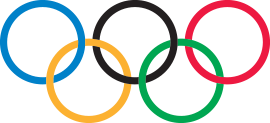It has always been IFMA’s mantra that the athlete’s safety must come first. The recent clamp down on the Ratio Rule between the number of athletes entered by each Country and the number of national/team referees supplied by each country has meant a positive surge in the number of national referees attending the Championships.
In response to this pleasant influx the IFMA Referees Commission have strengthened their criteria to continue to ensure Fair Play is number one on our playing field. IFMA has increased the level of knowledge required by all referees at the Youth World Championships in Antalya and every ITO and National Referee have been put through a rigorous online exam. Last Friday in preparation and before being allowed to attend the IFMA YWC as a referee. The exam had a total of 51 robust questions on different areas of the sport. Questions included areas such as athlete protection, the scoring system, equipment, as well as the clarification of rules and procedures.
As with all forms of education each referee will have to reach a high level of competence in all areas before being appraised and allowed into the ring. Not all new referees will have ring duty at their first Championships but they will have ample opportunity to listen and learn about the level of knowledge and practice the skills required at international level in the field of play.
The exam has many different and potentially difficult questions, because in many situations there can be several possible correct answers. This will mean the referees must know how to deal more concisely with the rules and the order or reason behind when they are required to implement them. This new additional pre-event examination will mean the referees acquire greater in depth knowledge. Thus, referees are more prepared before arriving at the Championships and will have more time in the days leading up to the competition.
Additionally, the scheduled referee meetings can be used to dive more deeply into any questions that arise from the examination the referees have completed. Head of the Referees Commission, Gunter Plank stated “many referees have questions, and for me it is very important that they exchange ideas and talk about the exam and any questions that arise during and prior to the event.” He went on to say, “In this way, the refs become more involved with the rules, read them more often and get a better understanding of them. And the interpretation of the rule is then handled better.” Working together with fellow Head Referee and Executive Board Member Abby Nelson, Abby and Gunter understand the importance these discussions are to ensuring the safety of the athletes and the fairness of the competition.
I think this rule to increase the number of referees is very good. If there are many new referees at the events, we can train them better and they learn by observing and by exchanging ideas and communicating with the more experienced referees. If there is a possibility, they can be a shadow jury. Our sport has many high emotions and sometimes a national team might disagree with the results. But if they bring good referees that are well-trained team referees, then they can help by communicating with their National Team and can inform and clarify the rules and decisions with the Team coaches and athletes as well as help to teach other referees about the rules in their home country.
Abby Nelson stated, “the 2023 World Championship in Bangkok was something special and there were over 100 team referees who wanted to take part in the prestigious event that marked the 30th anniversary of the IFMA. It was an unprecedented number of team referees and Mr Plank and her discussed how they can best improve and train these new referees to ensure the integrity of the decisions and control of fair play for future Championships and the athletes that compete in them.



